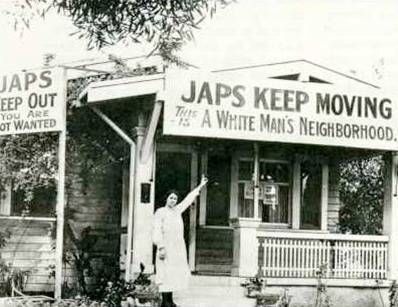Dunn’s Civics > Black History > Highest Standards
Civil Rights
Yick Wo vs. Hopkins
The first great Civil Rights victory for the American people was won for them by an immigrant: Yick Wo--a Chinese laundryman.
Watch the 20-minute documentary on his Supreme Court litigation: Yick Wo v. Hopkins (1886.)
President Wilkins and Oberlin’s Resistance to E.O. 9066. Directing the Internment of Japanese-Americans
President Wilkins
In February 1942, following the attack on Pearl Harbor, President Franklin Roosevelt signed the now-infamous Executive Order 9066, calling for the relocation of persons of Japanese descent in the Western states.
President Ernest Hatch Wilkins, was a key figure in helping Pomona College junior, “Sue” Hisanaga Yamaguchi’43 escape internment, by admitting her to Oberlin as a transfer student permitting her to board an East-bound train just hours before she would have been placed in custody.
After concluding her work at Oberlin in 1943, Sue was awarded her degree from Pomona in absentia during Oberlin's commencement. In a letter to President Wilkins, read at that ceremony, Pomona President E. Wilson Lyon wrote, "It is on the part of Pomona and Oberlin an assurance to our loyal Japanese citizens that we believe in democracy and tolerance. May this ceremony ... serve as a pledge of faith and goodwill on the part of American higher education."
Special interest groups were extremely active in applying pressure for mass evacuation.See House Report No. 2124 (77th Cong., 2d Sess.) 154-6; McWilliams, Prejudice, 128 (1944). Mr. Austin E. Anson, managing secretary of the Salinas Vegetable Grower-Shipper Association, has frankly admitted that:
"We're charged with wanting to get rid of the Japs for selfish reasons. . . . We do. It's a question of whether the white man lives on the Pacific Coast or the brown men. They came into this valley to work, and they stayed to take over. . . .They undersell the white man in the markets. . . . They work their women and
children while the white farmer has to pay wages for his help. If all the Japs were removed tomorrow, we'd never miss them in two weeks, because the white farmers can take over and produce everything the Jap grows. And we don't want them back when the war ends, either."
Quoted by Taylor in his article "The People Nobody Wants," 214 Sat.Eve.Post 24, 66 (May 9, 1942).
Dissent of Justice Frank Murphy, in Korematsu v. United States, 323 U.S. 214 (1944), which upheld the constitutionality of the government's internment of Japanese-Americans during World War II. Murphy sharply criticized the majority ruling as "legalization of racism." He was America's greatest Civil Rights Justice.
Read Murphy’s dissent in Korematsu. Read More >>
And about Justice Murph Read More >>





